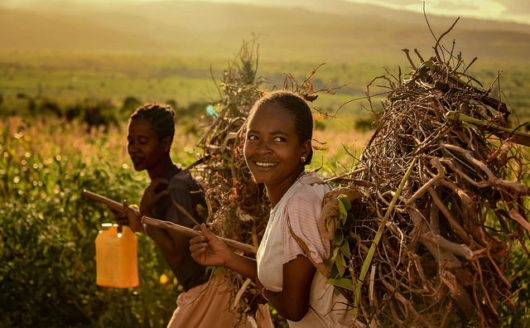5 Women Entrepreneurship Organizations
 Many governments and companies around the world have come to realize that encouraging the advancement of women is essential to the development of communities as a whole.
Many governments and companies around the world have come to realize that encouraging the advancement of women is essential to the development of communities as a whole.
Five organizations, in particular, are making huge strides to help women entrepreneurship through financing and training programs.
Kiva
Kiva is a crowdfunded lending organization that gives loans to those who can’t access fair and affordable sources of credit.
As an international nonprofit organization operating in over 80 countries, it provides opportunities for people who are financially excluded from the capital to become farmers, pursue an education, or develop business ventures.
It operates by pooling money from lenders that each pay a small part of the loans to minimize the cost to individual lenders while maximizing its effectiveness by joining resources with others.
Since 2005, Kiva has funded $1.22 billion worth of loans to 3 million lenders. While loans are available to both men and women, 81 percent of Kiva borrowers are women.
In support of Kiva’s values and success, Bank of America and the U.S. Department of State partnered with Kiva in 2017 to support the “Women’s Entrepreneurship Fund” that hopes to support 1 million women entrepreneurs by 2021.
Kula Project
The Kula Project is an organization that works out of Rwanda. It is designed to develop entrepreneurs through vocational fellowship programs.
These programs provide business investment training, tips on creating or improving business plans and industry training in artisan goods, coffee farming and agribusiness.
Another important part of the Kula Project’s resources is its one-on-one mentorships that provide information on financial planning, family health and business leadership.
Both men and women can participate in the Kula Project’s fellowship program, but women are particularly benefitting through the organization’s Women’s Centers that focus on training them to create their own sewing, weaving and agriculture businesses to sell handmade products on the local market.
With a business model that focuses on listening to the needs of the community, Kula Project is working to plant the seeds for future success and allow the community to sustain its own development.
Women’s Global Empowerment Fund
The Women’s Global Empowerment Fund (WGEF) provides both microcredit loans and vocational training for business and leadership development for women in Uganda.
WGEF aims to create sustainable human development through the use of social capital building programs that aim to alleviate poverty, empower women, strengthen food security and health among families and generate an atmosphere of self-determination.
The Credit Plus program created by WGEF has assisted women in opening restaurants, bakeries, hotels, construction projects and small to medium scale agriculture projects that also increase local food production, giving women entrepreneurs the opportunity to be new leaders in society.
These successes are even more impressive due to the nature of the post-conflict region.
The clients of WGEF have been former abductees, child soldiers and victims of gender-based violence and they have the full support of the Women’s Global Empowerment Fund.
Friendship Bridge
According to the United Nations and Harvard Business Review, when women earn an income, they invest 90 percent of it into their families and communities. In comparison, men invest 35 percent for the same purpose.
With this understanding, Friendship Bridge works with a mission to empower impoverished communities in Guatemala by supporting women entrepreneurs.
Friendship Bridge uses their Microcredit Plus Program, small loans to impoverished women, as a sustainable business model to lift women out of poverty.
The organization relies on a group lending model that they call “Trust Banks” to instill accountability but also to create support through social capital. Today, the organization helps to support as many as 22,000 women.
Friendship Bridge’s Client Continuum strategy believes that the combination of financial capital (credit), human capital (skills) and social capital (networks) accelerate the services they provide to not only become entrepreneurs but leaders as well.
Clients are required to undergo non-formal education sessions to accompany their microloans, with options for further mentorship and advanced training in business practices or technical training.
These educational advancements have helped women open businesses in textiles, the food industry and has given people the opportunity to access education.
As an added bonus to this organization’s great work in alleviating poverty, it is addressing the largest group of immigrants coming to America, assist them in creating livelihoods and make them want to stay.
Women Entrepreneurs Finance Initiative (We-Fi)
The Women Entrepreneurs Finance Initiative, backed by the World Bank, works to address the financial and social constraints that small and medium women-owned enterprises face in developing countries.
This is a widespread collaborative initiative that includes 14 governments, 8 multilateral development banks and both public and private stakeholders.
Starting with $340 million for women entrepreneurs in the first year, the organization is expected to mobilize $1.6 billion in additional investment funds from the public and private sectors and development partners.
These funds will work to provide women with access to debt, equity, venture capital and insurance markets, link women-led small and medium enterprises to supply chains, connect women entrepreneurs with networks and mentorship and improve legal limitations that constrain women-led businesses.
These five organizations and initiatives have proven invaluable in changing the quality of women’s lives, and consequently, transforming the communities in which they live.
Advocacy remains an important part of this change in making sure that people are aware of these ideas and opportunities for change.
– Sara Andresen
Photo: Flickr
